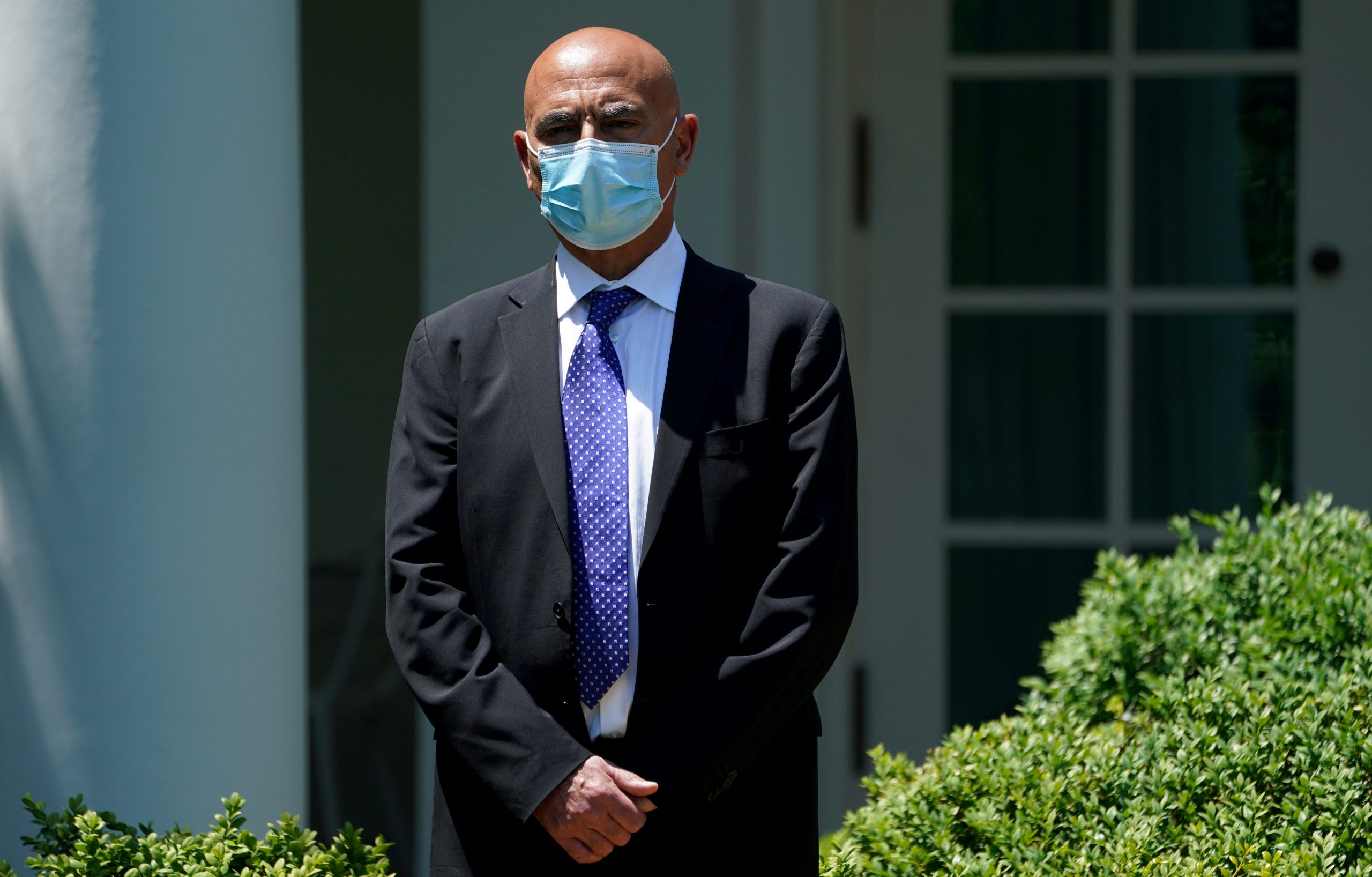The United States expects to have immunized 100 million people with the coronavirus vaccine by the end of March, the chief adviser for the U.S. COVID-19 vaccine program said on Sunday.
The first vaccine was authorized for emergency use by U.S. regulators on Friday night and began shipping on Sunday.
“We would have immunized 100 million people by the first quarter of 2021,” U.S. Operation Warp Speed chief adviser Dr. Moncef Slaoui said in an interview with Fox News Sunday.
He said the United States hopes to have about 40 million doses of vaccine distributed by the end of December, which would include the just authorized vaccine from Pfizer Inc and one from Moderna Inc expected to get a similar emergency use nod later this week.
Another 50 million to 80 million doses will be distributed in January, and the same number in February, Slaoui said. The vaccine requires two shots per person.
“We are working with Pfizer to continue helping them and supporting them achieve the objective of providing us with another 100 million doses in the second quarter of 2021,” Slaoui said.
The first to be vaccinated would be front line healthcare workers, as well as residents of long-term care facilities, he added.
For the United States to get “herd immunity,” which would halt transmission of the deadly virus, the country would need to have immunized about 75% or 80% of the population, he said, adding that he hoped to reach that point between May and June.
“It is however critical that most of the American people decide and accept to take the vaccine,” Slaoui said. “We are very concerned by the hesitancy that we see.”
He said he hoped people will keep an open mind, “listen to the data and openly agree that this is a very effective and safe vaccine and therefore take it.”
In a large clinical trial, the Pfizer vaccine was 95% effective in preventing illness with few serious side effects.
Slaoui downplayed suggestions that there might not be enough vaccine to go around. He noted that a vaccine from Johnson & Johnson is likely to be ready for authorization late in January or early in February, and that he expected AstraZeneca’s vaccine to be “potentially approvable somewhere late in February.”
Political pressure for vaccines to be approved was “not helpful, because it’s not needed,” Slaoui said in response to questions about reports that White House chief of staff Mark Meadows called Food and Drug Administration head Stephen Hahn on Friday to urge him to authorize the vaccine that day or possibly lose his job.
A tweet on Friday by President Donald Trump, who has been critical of both the FDA and Pfizer, said to “Get out the damn vaccine NOW, Dr. Hahn.”
“If that phone call happened, I think it was useless and unfortunate, and so are some of the tweets,” Slaoui said.
(Reporting by Susan Cornwell; Editing by Lisa Shumaker and Bill Berkrot)
























